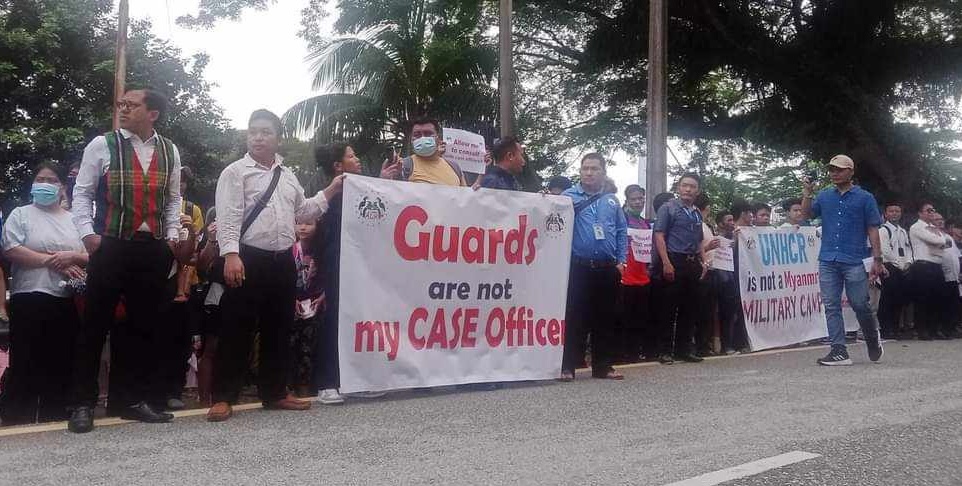Members of Myanmar’s National League for Democracy (NLD) party, which was ousted from government in the 2021 military coup, have demanded the release of Aung San Suu Kyi on her 80th birthday. The NLD has been disbanded by the regime in Naypyidaw with its members either jailed, underground, or in exile.
Global calls to free Aung San Suu Kyi on her 80th birthday [AUDIO]
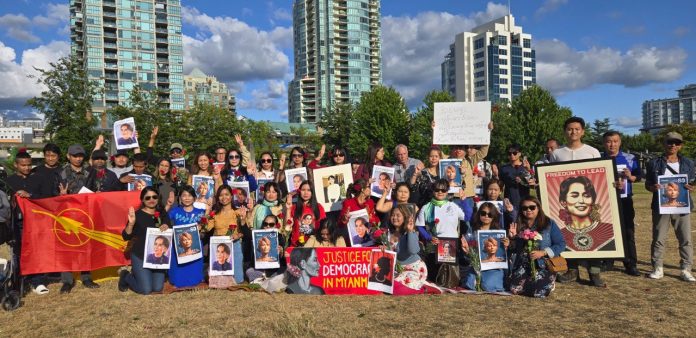
Two People’s Defence Force members killed in Shan State; Malaysia urged to stop arrests of Myanmar refugees
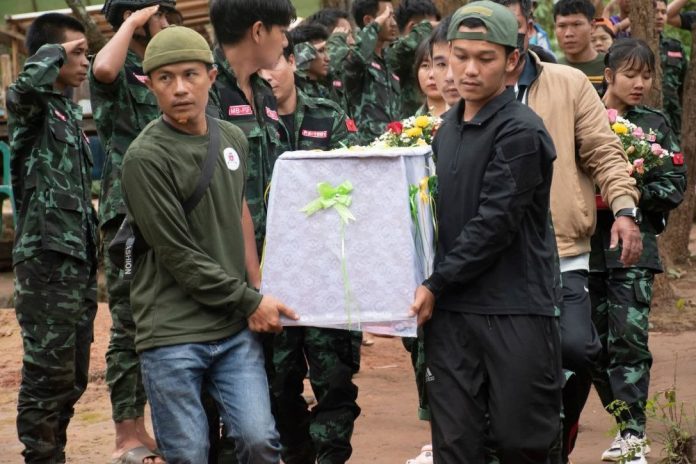
Two People’s Defence Force members killed in Shan State
The People’s Defence Force (PDF) in Moebye town of Pekon Township, southern Shan State, announced on Wednesday that a funeral was held for two of its members killed by regime forces during fighting June 15-16. Moebye is located 100 miles (160 km) south of the Shan State capital Taunggyi and 11 miles (17 km) north of the Karenni State capital Loikaw.
A frontline source told DVB on the condition of anonymity that pro-regime forces, including the Pa-O National Organization (PNO), launched a counteroffensive to retake Moebye in June. This led to at least 40,000 civilians fleeing their homes in Pekon, according to a statement from the provisional government Karenni Interim Executive Council (IEC) on June 16.
The Progressive Karenni People Force (PKPF) announced on June 1 that 3,808 regime troops have been killed by resistance forces in Karenni and southern Shan since the 2021 military coup. Karenni resistance forces have lost a total of 759 members killed by regime forces, which began its counteroffensive to retake control of southern Shan from the resistance in November.
Malaysia urged to stop arrests of Myanmar refugees
Fortify Rights called on Malaysia to end the use of torture inside Immigration Detention Centers and to stop arbitrary arrests and raids against undocumented migrants in a report released on Wednesday. Recent raids have resulted in the arrest and detention of refugees from Burma registered with the U.N. High Commissioner for Refugees (UNHCR) in Malaysia.
“Malaysia must end these indiscriminate immigration raids, provide formal refugee status to people whose lives are in danger in their home countries, restore UNHCR’s full access to detention centers, and put in place clear safeguards so that no one fleeing persecution is tortured, arbitrarily arrested, detained or forcibly returned,” said Yap Lay Sheng. a human rights specialist at Fortify Rights.
Testimony was collected by Fortify Rights from 17 victims and eyewitnesses, primarily Rohingya and others from Burma living in Malaysia. The authorities have arrested 34,287 individuals, an average of 7,800 per month from January to May this year. This is more than triple the 2023 rate of 2,300 and nearly double the 2024 rate of 3,900. Malaysia deported 80 Burma nationals in May.
Edible oil loan scheme accused of having ‘complex procedures’
Business owners in Burma told DVB that due to “complex procedures” in the regime’s application process to disburse loans to edible oil manufacturers, only about four billion MMK ($900,000 USD) out of 50 billion MMK ($11 million USD) has been loaned since Naypyidaw announced the plan in July 2023.
“We need approvals from seven scrutiny bodies to receive a loan,” a business owner told DVB on the condition of anonymity, adding that the regime-controlled Myanma Agricultural Development Bank (MADB) and Myanma Economic Bank (MEB) are two of the scrutiny bodies. The regime announced that 35 edible oil manufacturers have received loans to date.
Each business owner can apply for up to 500 million MMK ($100,000 USD) in loans through the MADB, MEB and private banks at a 5.5 percent interest rate under this scheme. Regime figures show Burma consumes over one million tons of edible oil annually but produces only 300,000 tons and imports the remaining 800,000 tons.
News by Region
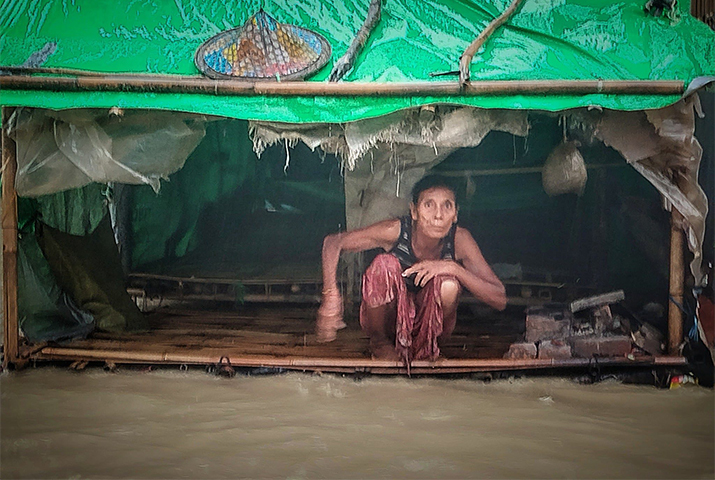
ARAKAN—Volunteers in Ponnagyun Township told DVB that over 200 people staying at Internally Displaced Person (IDP) camps needed aid due to flooding caused by rains on Wednesday. Ponnagyun, located 21 miles (33 km) northeast of the state capital Sittwe, came under Arakan Army (AA) control in March 2024.
A source in Ponnagyun told DVB on the condition of anonymity that the floodwaters reached chest-level in some areas of the township after heavy rains. Ponnagyun is home to five IDP camps sheltering people who’ve fled their homes due to fighting in Ponnagyun, Rathedaung, and Sittwe.
CHINLAND—The Chin Brotherhood told DVB that it is allowing residents to return to their homes in towns under its control. It added that its administration is restoring water supplies and municipal services, as well as clearing landmines and other explosive remnants of war.
“Rebuilding requires starting over completely,” Salai Than Shwe, a representative of the Chin Brotherhood, told DVB. It warned residents that airstrikes are still a pervasive threat. Over 200,000 people have been displaced from their homes in Chinland since the 2021 coup.
KAREN—Sources told DVB that the Karen National Union (KNU) is now stationed inside seized regime outposts along the Burma-Thailand border to keep regime troops from returning. Only four outposts remain under regime control in Myawaddy District.
Myawaddy is located 81 miles (130 km) east of the state capital Hpa-An, and adjacent to Thailand’s Tak Province in KNU Brigade 6 territory. Naw Say Say Heh, the vice chair of Karen Women’s Organization (KWO), told DVB that residents feel much safer now that regime forces have left.
MAGWAY—Minbu Township residents told DVB that more than 4,000 acres of crop fields, mostly sesame fields, were flooded and destroyed by continuous rain over the past two weeks. Minbu is located 4.2 miles (6.8 km) northwest of the region’s capital Magway.
“We can’t recover anything,” a Minbu resident told DVB. Residents of Nyaungshwe Township in southern Shan State, located about 19 miles (30 km) southwest of Taunggyi, also reported rains causing floods that destroyed crop fields near Inle Lake since June 10.
(Exchange rate: $1 USD = 4,520 MMK)
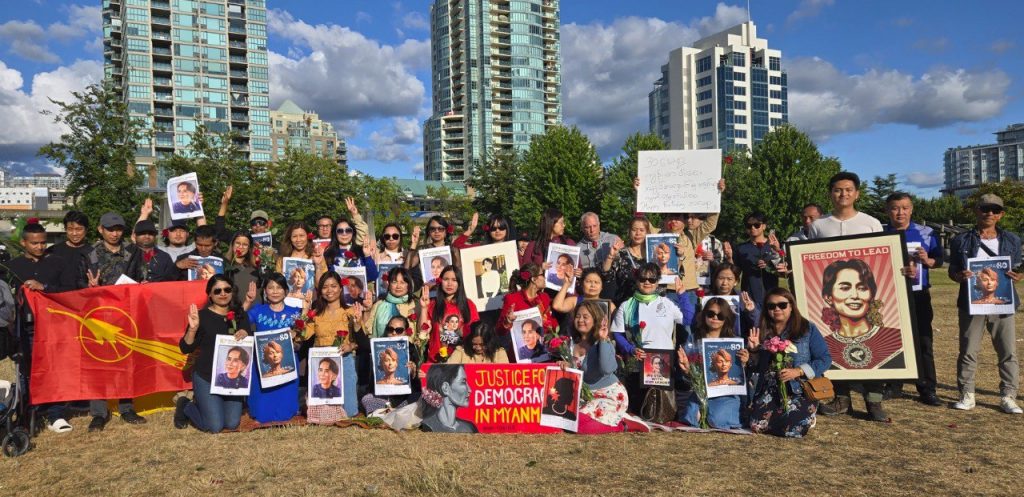
Watch: Calls to free Aung San Suu Kyi on her 80th birthday on DVB English News YouTube or Spotify. Listen to this story as audio wherever you get podcasts.
From stateless in Myanmar to self-reliant in New Zealand
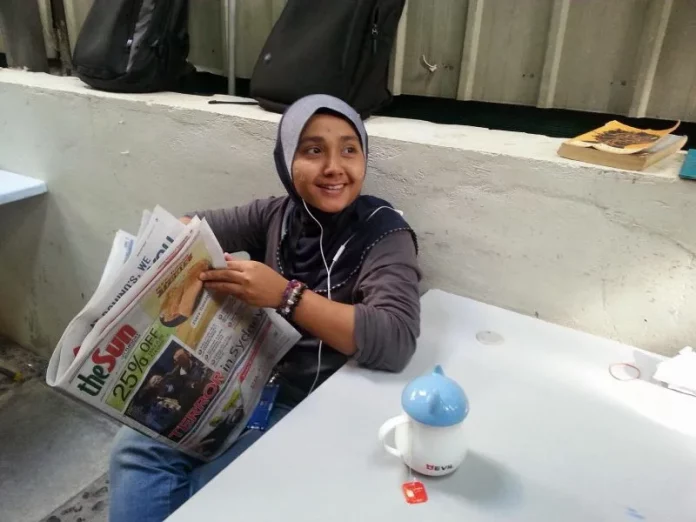
By Muzliza Mustafa for Twentytwo13
Hafsar Tameesuddin’s life began in a small village between Myanmar’s Rakhine and Chin states. Her family had deep roots there, spanning generations.
But like her father and grandfather, she held no official documents identifying her as a citizen – a consequence of Myanmar’s 1982 Citizenship Law.
The law rendered the Rohingya stateless, labelling them as foreigners and revoking previously issued identification papers.
“I remember we had to apply for a travel pass just to leave our village,” she said in an exclusive interview with Twentytwo13.
“It was an offence to travel without it because we were not recognised as citizens.”
She recalled a chilling incident in which villagers were shot for crossing district lines to collect roofing leaves.
“No one was ever safe from the atrocities,” she said.
“Women and girls would disappear overnight. Some people I knew were murdered.”
Denied rights
The Rohingya – a Muslim minority in Buddhist-majority Myanmar – have long faced systemic discrimination.
Human rights groups have described their situation as apartheid-like, with severe restrictions on movement, education, healthcare, and employment.
The situation worsened in 2017 when a violent military crackdown forced more than 655,000 Rohingya to flee to Bangladesh.
While many ended up in crowded camps in Cox’s Bazar, others, like Hafsar, risked dangerous overland and maritime routes in search of safety and dignity.
“Back in Myanmar, we could go to school and sit for exams, but we never received certificates to prove we completed our studies,” she said.
“We weren’t even allowed to attend graduation ceremonies.”
Employment was equally out of reach.
“No one wanted to hire Rohingya. It was against the law.”
Her family survived on the earnings from her mother’s small sundry shop – though that too was precarious.
“If the authorities came and seized our goods, there was nothing we could do. They had the power to act as they pleased.”
Escaping Myanmar
Even as a child, Hafsar – the third of five siblings – dreamed of life beyond her village. In her mid-20s, she made the bold decision to flee.
“I knew I had to leave if I wanted to survive and build a better life for myself and my family,” she said.
With her savings, a few clothes, and her English books, she escaped to Yangon. She spent months shifting between homes, sleeping in alleys, and dodging arrest while waiting for a chance to cross into Thailand.
She eventually made it to Mae Sot, but after two more years of hardship, she took another risk.
Trafficked to Malaysia
In 2010, with 2,500 MYR ($589 USD) borrowed from a cousin abroad, Hafsar paid a trafficker to smuggle her into Malaysia.
“The journey was rough,” she said.
“We travelled by train and small boat. In some parts, we had to walk through jungle before finally reaching Kuala Lumpur.”
Life in Malaysia brought new challenges. With no legal status, she struggled to find work.
“I even offered to work for half the salary of locals, but still, no one wanted to hire me.”
She eventually found a job cleaning a wet market and wholesale market. The pay was minimal. She set aside some for rent and food and sent the rest home. She shared a house with other Rohingyas, paying 250 MYR ($59 USD) monthly for rent.
Malaysia is not a signatory to the 1951 UN Refugee Convention or its 1967 Protocol. Refugees and asylum seekers are considered undocumented migrants and face limits on employment, education, and access to healthcare. However, they are allowed to remain temporarily until resettlement elsewhere.
According to the United Nations High Commissioner for Refugees (UNHCR), as of May, 200,260 refugees and asylum seekers were registered in Malaysia.
Of these, 179,670 were from Myanmar – mostly Rohingya, followed by Chins and other ethnic groups from conflict zones. The rest came from 50 countries fleeing war and persecution.
Although life in Malaysia was difficult, Hafsar said it was still better than in Myanmar.
“It was safer. At least here, I could survive.”
After nine years, things changed when a local non-governmental organization (NGO) discovered her language skills. Besides Rohingya and Burmese, she spoke English and Malay. They offered her a job as a translator.
That opened new doors. She later worked with several NGOs and eventually joined the UNHCR, helping with translation and community outreach, especially for Rohingya women and children.
She received a small honourarium – more than what she earned as a cleaner, but still modest.
Life under threat
In 2016, her work drew hostility from within the community. Her support for Rohingya women who had survived sexual and gender-based violence put her life at risk.
“I was living in fear,” she said.
“They were tracking me down. It wasn’t safe anymore.”
It took two years before a third country offered resettlement, and another year for the process to be completed.
In 2019, Hafsar moved to New Zealand. She enrolled at university, earned a degree in social work, and is now pursuing a master’s degree in public policy.
Her family has since joined her. She continues her advocacy work and now serves as co-secretary general of the Asia Pacific Refugee Rights Network (APRRN) – a coalition of more than 270 civil society organisations and individuals across 28 countries championing refugee rights.
Malaysia brings hope
Despite everything, Malaysia still holds a special place in her heart.
“I use the challenges I faced in Malaysia to motivate myself. It was home for nine years. In many ways, it reminds me of Myanmar. But here, I got to work with my community.
“Although some didn’t welcome our presence, there were many kind Malaysians who treated us with compassion.”
Asked what she missed most about Malaysia, Hafsar smiled.
“The weather and the food. I love nasi lemak, nasi ayam and teh tarik.”
Now with the freedom to travel, Hafsar hopes to explore parts of Malaysia she never got to see.
“There’s still so much to discover,” she said.
Twentytwo13 is an independent Malaysian news website, bringing you insights on issues that matter to the people.
Global calls to free Aung San Suu Kyi on her 80th birthday
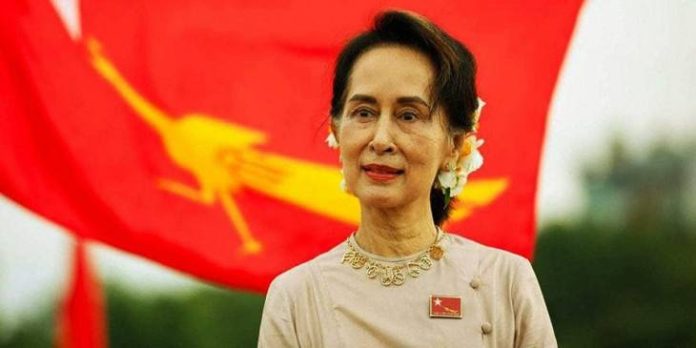
Members of Myanmar’s National League for Democracy (NLD) party, which was ousted from government in the 2021 military coup, have demanded the release of Aung San Suu Kyi on her 80th birthday. The NLD has been disbanded by the regime in Naypyidaw with its members either jailed, underground, or in exile.
Regime ‘monitoring’ Aung San Suu Kyi 80th birthday tributes
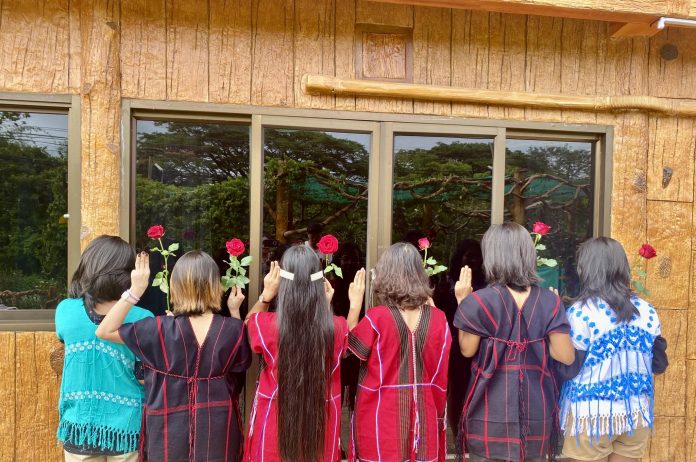
Sources close to the regime in Naypyidaw told DVB that administration officials were ordered to monitor any public campaigns across the country, or online, to mark the 80th birthday of jailed State Counsellor Aung San Suu Kyi on Thursday.
“This order applies nationwide, not just to Yangon. Intelligence officials will monitor every street in plain clothes,” the source told DVB on the condition of anonymity. The source added that anyone wearing flowers or blue shirts — a symbol of prison uniforms — will be subject to scrutiny.
Over the last four years, people inside Myanmar and abroad have participated in an online “Flower Strike” on June 19 to raise awareness about Aung San Suu Kyi’s detention. She’s been held by the regime since the military coup on Feb. 1, 2021.
Foreign embassies and delegations in Myanmar — including those of the U.S., the U.K., the E.U., Norway, and the Netherlands — marked her birthday by changing their profile pictures or posting birthday messages on social media on Thursday.
“On this occasion, we reiterate our call for the military regime to release her and all those unjustly detained, cease violence against civilians, and engage in dialogue with all stakeholders to end the crisis,” the U.S. embassy in Yangon shared on social media on June 19.
Aung San Suu Kyi is currently serving a 27-year prison sentence in the capital Naypyidaw. The Suu Foundation announced on Wednesday that she reportedly injured her left arm during the March 28 earthquake, which damaged her prison cell.
The Suu 80th Birthday Campaign announced on social media that it had reached its goal of receiving 80,000 video birthday wishes for Aung San Suu Kyi on Wednesday.
This campaign is part of the Suu80 Challenge — an 80 km run over 10 days to raise awareness about her imprisonment since the 2021 coup by her youngest son Kim Aris.
“This e-birthday wish record is a powerful testament to [my mother’s] global support. It is my hope this achievement brings urgent attention to her plight and that of the people of Burma. Her voice may be silenced but her flame will never be extinguished,” Aris told DVB.
Last month, Aris received the Citizen of Burma Award on Aung San Suu Kyi’s behalf in the U.S., where he raised $400,000 USD for the Suu 80th Birthday Campaign earlier this year. Funds raised by the Suu80 Challenge will go toward supporting the families of 22,142 political prisoners in Myanmar, as well as to emergency humanitarian relief, via Aris’ organization Aid2Burma.
Wai Moe Naing held in solitary at Mandalay’s Obo Prison; Aung San Suu Kyi 80th birthday campaign reaches goal
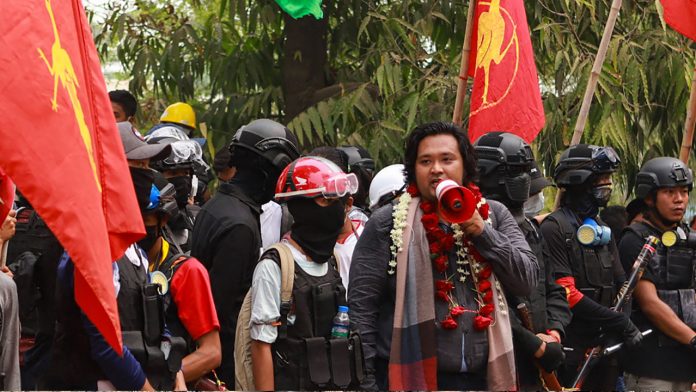
Wai Moe Naing held in solitary at Mandalay’s Obo Prison
Political prisoner Wai Moe Naing has been held in solitary confinement since he was transferred to Mandalay’s Obo Prison from Monywa Prison in Sagaing Region on June 12. He was among 50 political prisoners injured by prison guards using “rubber and wooden batons,” according to the Political Prisoners Network Myanmar (PPNM).
“Depending on their [political] stance and level of [activism], some were placed in solitary confinement cells while others were sent to prison wards,” Thaik Tun Oo, the PPNM spokesperson, told DVB. Wai Moe Naing, 29, was arrested during an anti-coup protest on April 15, 2021, then convicted of various charges, including murder, and sentenced to 74 years in prison.
Two political prisoners have died inside Obo Prison due to a lack of adequate medical care since May, according to PPNM. It reported 41 political prisoners among 64 inmates killed at Obo Prison during the March 28 earthquake. The Assistance Association for Political Prisoners (AAPP) has documented that 22,134 individuals are still being jailed in Burma for political reasons.
Malaysia deports 80 Myanmar migrant workers
The Alliance of Chin Refugees (ACR), a Kuala Lumpur-based organization representing refugees and asylum seekers from Burma in Malaysia, has urged the immigration department ahead of World Refugee Day on June 20 to halt the deportations of undocumented migrant workers from Burma. James Bawi Thang Bik, the ACR Chairperson, has cited the risk of arrest by the regime upon arrival in Yangon.
“The family members [of migrant workers deported from Malaysia] are searching for their children [in Yangon] because they did not arrive at the airport. We are not rejecting arrests, but we plead that deportations not be carried out,” James Bawi Thang Bik told media at a press conference in Kuala Lumpur on June 16. He added that approximately 80 Burma nationals were deported from Malaysia on May 28.
Rafik Ismail, a volunteer working with Rohingya in Malaysia, added that roughly 3,000 refugees from Burma are currently being held at Malaysian immigration detention centres. “It is safer for them to remain in detention here [in Malaysia], where there is at least a chance to survive,” he said. Malaysia hosts 179,020 refugees from Burma, according to the U.N. High Commissioner for Refugees (UNHCR).
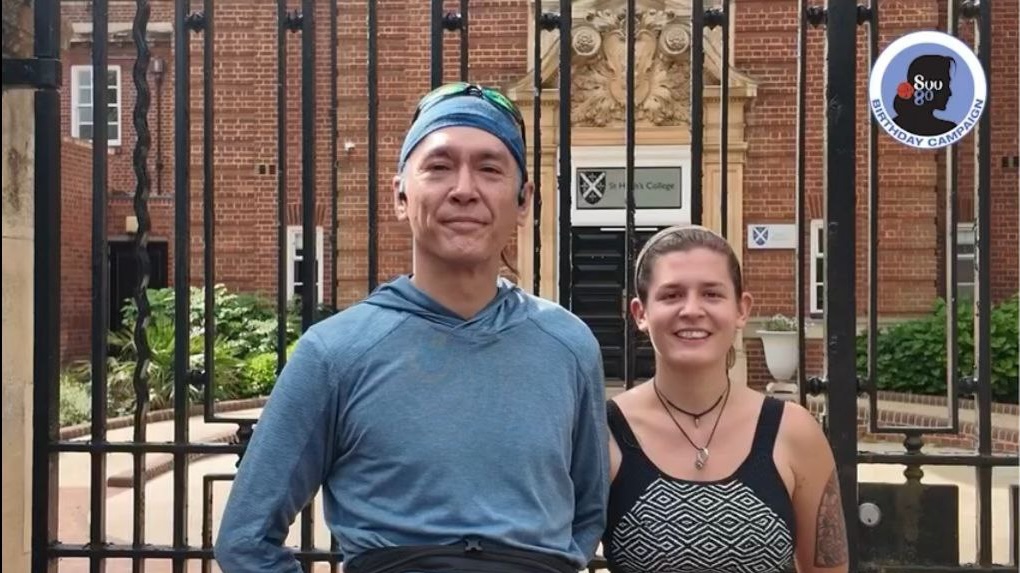
Aung San Suu Kyi 80th birthday campaign reaches goal
The Suu 80th Birthday Campaign announced on social media that it had reached its goal of receiving 80,000 video birthday wishes for jailed State Counsellor Aung San Suu Kyi on Wednesday — one day ahead of her 80th birthday on June 19. This campaign is part of the Suu80 Challenge – an 80 km run over 10 days to raise awareness about her detention since the military coup on Feb. 1, 2021 by her son Kim Aris.
“This e-birthday wish record is a powerful testament to [my mother’s] global support. It is my hope this achievement brings urgent attention to her plight and that of the people of Burma. Her voice may be silenced but her flame will never be extinguished,” Aris told DVB. Last month, he received the Citizen of Burma Award on her behalf in the U.S., where he raised $400,000 USD for the campaign earlier this year.
Funds raised by the Suu80 Challenge will go toward supporting the families of political prisoners in Burma, as well as to emergency humanitarian relief via Aris’ organization Aid2Burma. Participants uploaded videos under 30 seconds long, via the Aid2Burma website, wishing Aung San Suu Kyi a happy 80th birthday. Guinness World Records states that the most birthday wish videos ever received is 32,207.
News by Region
YANGON—Visitors to Shwedagon Pagoda told DVB that authorities were searching anyone entering carrying flowers on Wednesday. Over the last four years, people inside Burma and abroad have participated in the Flower Strike on June 19 to raise awareness about Aung San Suu Kyi.
“Now we can’t even visit the pagoda in peace,” a visitor told DVB on the condition of anonymity, criticizing the regime’s alleged scrutiny of young people. Pro-military social media accounts claim that anyone caught sharing birthday wishes to Aung San Suu Kyi could be arrested.
KACHIN—Hpakant Township residents told DVB that bodies buried at a cemetery in Lonekhin village have become visible as excavation work has begun to develop the land into residential plots. Residents accused village elders of selling the land to unknown businesspeople.
Sources told DVB that fighting between regime forces and the Kachin Independence Army (KIA) in Lonekhin village has been ongoing since May. Lonekhin, located seven miles (11 km) northeast of Hpakant town, has been under KIA control since April 2024.
BAGO—The People’s Defence Force (PDF) in Thayarwady District told DVB that 20 regime troops, including two high-ranking police officers, were killed at a police station and checkpoints in Minhla Township, located 104 miles (167 km) northwest of the region’s capital Bago.
A PDF member told DVB that it killed almost every troop that arrived as reinforcements. But it added that three civilians in a car were killed by artillery fired by regime forces on the Yangon-Mandalay highway in response to the PDF-led attack.
SAGAING—The PDF told DVB that eight regime troops were killed in two vehicles traveling from Chaung-U to Monywa that struck landmines in Kutawpalin and Taungpon villages on Monday. Chaung-U is 16 miles (25 km) south of the region’s capital Monywa.
“The bodies [of troops killed] were recovered by the military,” a PDF member told DVB. Residents said that regime forces set up checkpoints along the Monywa-Chaung-U-Mandalay road on Tuesday. The PDF destroyed one of the two regime vehicles by setting it on fire.
(Exchange rate: $1 USD = 4,520 MMK)
